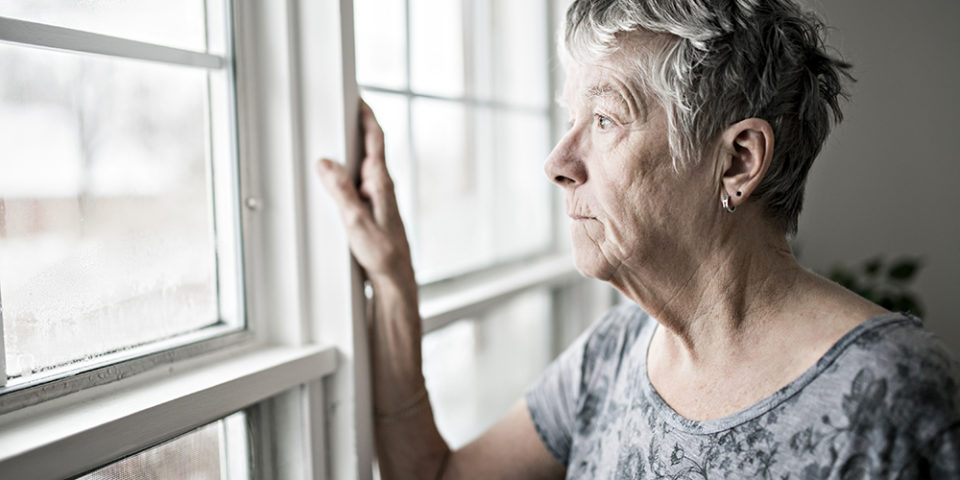The impact of isolation among the elderly
Even before the pandemic, isolation and loneliness were common problems affecting the health of millions of seniors. Geriatric psychiatrist Anu Nagar, MD, explained how the pandemic has made it worse and what you can do to help.
Why is loneliness a common problem among the elderly?
With aging, there can be a decline in income, health, social circles and social opportunities which can end up causing an increased sense of isolation.
How has this been made worse by the pandemic?
“There has been a significant increase in the mental health needs of the elderly, as well as their caregivers, since the first cases of COVID-19 were recognized in the United States,” Dr. Nagar said.
She explained these psychiatric needs as two-pronged – biological and social.
Biological. When a person is infected with COVID, the virus invades the central nervous system and assaults the brain. The elderly population is exceptionally vulnerable because they usually have other illnesses that put them at risk.
“We have patients who have had no previous psych history, and now they’re 65–70 years old and they’re showing up to our inpatient units with the onset of depression or new onset mania, sometimes new onset psychosis. This can be really frightening for the patients, their caregivers and their families,” Dr. Nagar said.
Social. Isolation has had a devastating impact on the quality of life in the elderly, resulting in a spike in anxiety and depression.
“A patient mentioned that she had not had any human contact in almost three weeks, because her interaction usually involved going to church or church members coming to visit her. When everything became virtual, her only contact was via the phone. She was not tech savvy, so she was not able to do video calls with family members. Her Meals on Wheels delivery person would just leave the meals at the door and ring the doorbell. This is heartbreaking,” Dr. Nagar said.
There’s also robust data coming out that the caregivers of patients with dementia have seen a significant increase in depression and anxiety, as well as high rates of burnout.
What are signs an elderly loved one may be depressed?
Dr. Nagar said it’s important to regularly check in with elderly parents and friends. Watch out for anything that’s different from their normal behavior, including changes in appetite, sleep pattern or motivation.
“A lot of depression in the elderly will present as irritability,” Dr. Nagar said. “With anxiety, you’ll see persistent worrying – more so than normal. There is a baseline level of anxiety that you will see in a lot of elderly people. So, you want to look for any kind of change or decline in function.”
How can I help an elderly loved one who is feeling depressed or anxious?
Calling the primary care physician is a good first step.
“If you notice someone is appearing more confused than usual, or if they’re beginning to hallucinate or have suicidal thoughts, bring them to the emergency department,” Dr. Nagar said. “When in doubt, call your doctor’s office.”
How can I help an elderly loved one who is afraid to go out in public?
“We are definitely seeing an increase in people who are afraid of being exposed to the virus if they go out,” Dr. Nagar said. “Protecting your health is a good thing. But when people are afraid to even leave to go to the grocery store or make it out to church, in that case, maybe small baby steps can help. Of course, make sure they’re vaccinated and masked.”
This could involve taking short trips to parks or other outdoor locations where it’s easier to control potential exposure or visits to the houses of masked and vaccinated friends and family members they haven’t had the opportunity to see in some time.
Support and assistance from loved ones can help seniors feel more comfortable finding and maintaining social connections.
Find the care you need, close to home
Our primary care physicians provide well visits and everyday care when you need it with compassion and expertise.
Find Primary Care Near You

